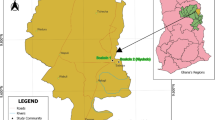Abstract
This essay discusses the development of policies regarding Jewish agricultural settlement in the Kingdom of Poland during the first half of the nineteenth century, focusing on the gaps between legal rulings and administrative practices, as well as on declared and hidden motivations. It argues that official policy toward Jewish agricultural settlement reflected the tensions present in so many discussions of the “Jewish question” in Poland between declared ideology and subconscious phobias and stereotypes. As proponents of Enlightenment ideology, Polish liberals advocated projects meant to reform Jewish society, including productivization. At the same time, they expressed misgivings that the strengthening of Jewish society might harm Christians. The result was striking ineffectiveness, which led to repeated failures, a growing disillusionment in Jewish circles, and the failure of the reform projects themselves.
Similar content being viewed by others
Author information
Authors and Affiliations
Corresponding author
Rights and permissions
About this article
Cite this article
Wodziński, M. Clerks, Jews, and farmers: projects of Jewish agricultural settlement in Poland. Jew History 21, 279–303 (2007). https://doi.org/10.1007/s10835-007-9039-2
Published:
Issue Date:
DOI: https://doi.org/10.1007/s10835-007-9039-2




